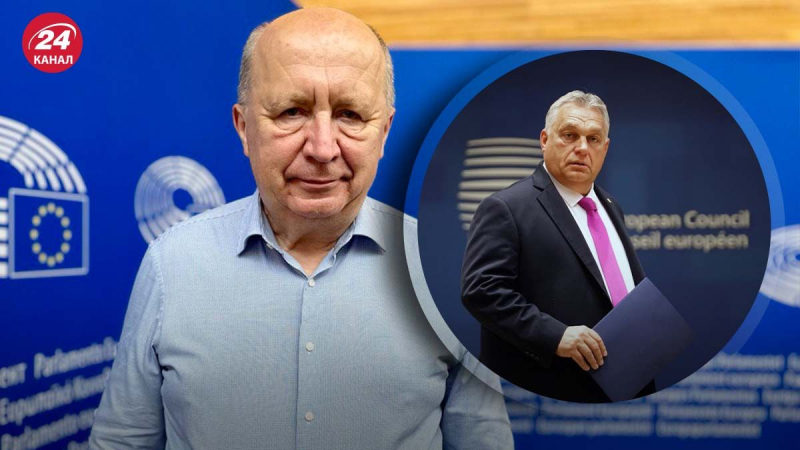How to stop the “organization” of Europe: Former Prime Minister of Lithuania on the challenges for Europe and Ukraine Sofia Nazarenko Former Lithuanian Prime Minister speaks out about challenges for Europe and Ukraine/Collage by Channel 24/Photo by Sofia Nazarenko, Getty Images A new, re-elected European Parliament has begun its work in the European Union. The EU elections demonstrated a shift in the political mood of European society to the right. What does this mean for Ukraine, will Viktor Orban gain power in the European Parliament and what does his visit to Moscow mean – read in the exclusive commentary to 24 Kanal by former Lithuanian Prime Minister Andrius Kubilius. The European Parliament held its first plenary session after the elections. In your opinion, will this institution's course regarding support for Ukraine change during this term?? During the first plenary session, we voted for a special resolution on Ukraine. We can call it a test vote, since it allowed us to see how many votes there will be in support of Ukraine in this parliament. And the results are not bad – I counted 73% of all votes in support of Ukraine, in support of this resolution. In addition, of course, this resolution now shows a clear continuation of our policy. But a simple continuation of our resolution is not enough. It is obvious that over the past two and a half years, the support of the West, including the support of the EU, allowed Ukraine not to lose the war, but it was not enough to win. We need to modernize our support in financial terms. Military support must be increased two or three times so that Ukraine begins to defeat Russia. And this should be the goal of this, the new European Parliament. In parallel with this, the EU enlargement program must become more ambitious, which would allow Ukraine to join the EU at the end of this decade. Of course, it is no secret that in addition to the 73-75% who support Ukraine, there is a certain growth of the so-called right-wing radical groups. Some of them are demonstrating obvious friendship with Putin. There are not many of them in number, but they can make a noise. We must be ready for this. But this will not create any major obstacles. On the contrary, I think that shifting the political constitution of the European Parliament to the right will allow us to strengthen both the security and defense policy of support for Ukraine by the EU. While some far-right groups are undoubtedly friends with Putin, such as the Patriots for Europe, other far-right groups, such as the European Conservatives and Reformists, are very strong supporters of Ukraine. We should also not forget that the majority in the European Council is passing into the hands of the European People's Party. Currently, exactly half of the prime ministers and presidents in the European Council belong to the EPP, and this figure may increase. The EPP is thus becoming the dominant political party in the entire European Union. The EPP has traditionally been very strong on defense, security and Ukraine issues. The third largest faction with a pro-Russian position, “Patriots for Europe”, has appeared in the European Parliament. How do you plan to seek consensus with this political group?? We will not seek any consensus with them. We are currently building a so-called “sanitary cordon” and are not allowing them to gain any serious positions in the European Parliament. These “Patriots for Europe” are nothing new. In the previous convocation of the European Parliament, we had a group called “Identity and Democracy”. Now they have changed their name – they have representatives from France's Le Pen, Hungarian Prime Minister Viktor Orban and members of the Czech populist party. However, this is nothing new, despite the new name. Their ability to influence decisions will remain almost at the same level as in the previous parliament. Viktor Orban began his presidency of the EU Council with a visit to Moscow. What should Kyiv expect from these events? I think that Hungary's presidency of the EU Council is a lost presidency. We should not expect anything very serious. All the activities of Viktor Orban bring the EU closer to understanding that this, as I call it, “Orbanization of Europe” must be stopped. Because using the right of veto to stop support for Ukraine and his “voyages” to different capitals is a clear violation of the fourth article of the EU treaty, which requires sincere cooperation of member states and devotion to the main strategic goals of the European Union. The European Union has defined a strategic goal – to help Ukraine win the war, and Orban is doing the opposite.
How to Stop the “Orbanization” of Europe: Former Lithuanian Prime Minister on Challenges for Europe and Ukraine
38

